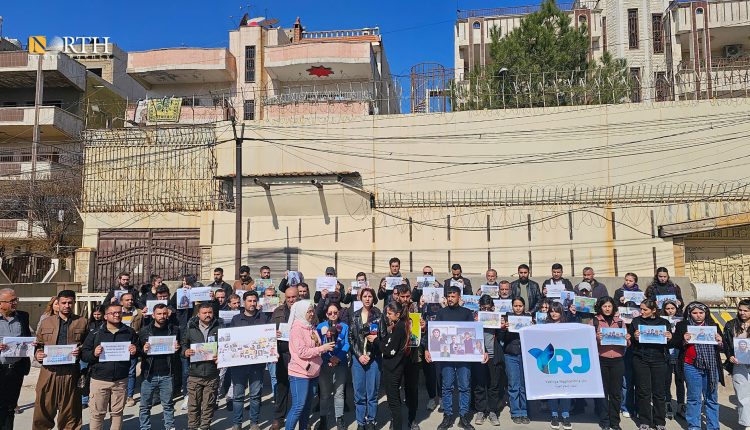Hate Speech in Syrian Media: Fueling Chaos Amid Lack of Oversight
By Kardo Roj
- HASAKA, Syria (North Press) – Following the collapse of Bashar al-Assad’s regime on December 8, the Syrian media landscape—especially social media—has been flooded with misleading and inflammatory content that fuels sectarian and ethnic divisions.
- With ongoing Turkish attacks in northeastern Syria and no political agreements reached with Damascus, the spread of unverified news continues to exacerbate tensions in the absence of regulatory oversight.
Catastrophic Consequences
- Journalist Heybar Othman warns that unchecked hate speech could have disastrous effects on Syria’s fragile society. “Since the fall of the previous regime, many journalists and social media activists have disseminated misleading reports that incite hostility among Syria’s religious and ethnic communities,” Othman told North Press.
- Othman, a Syrian Kurdish journalist working for Alhurra TV, fears that if hate speech remains unchecked, it could lead to civil war and significant bloodshed. He draws parallels with the role media played in inciting the Rwandan genocide in the 1990s, emphasizing the urgent need for intervention.
- To curb hate speech, Othman stresses the importance of cooperation between religious leaders, civil society organizations, political parties, and media institutions. He also advocates for stringent legislation to penalize media outlets that spread false information and promote hatred.
- According to Othman, the primary drivers of hate speech in Syria include biased media coverage, dissemination of false information, and influence from regional powers funding media outlets to push divisive narratives. Social media platforms—particularly TikTok, Instagram, Facebook, and YouTube—have become breeding grounds for misinformation and sectarian rhetoric, he notes.
Undermining Dialogue and Social Cohesion
- Masoud Mohammed, head of the Syrian Kurdish Journalists Network, describes hate speech as a critical issue that threatens Syria’s diverse social fabric. “The spread of hate speech, especially on social media, widens divisions and hinders dialogue among different communities, exacerbating tensions after Assad’s fall,” he says.
- Mohammed warns that such rhetoric could incite further violence and destabilize the region. He cites studies from 2023 and 2024 conducted by the Kurdish Journalists Network, which highlighted how Syrian media has been manipulated to spread fear and hostility.
- To combat this growing threat, Mohammed advocates for stricter media regulations, penalties for violators, and educational programs promoting tolerance and coexistence.
Reinforcing Stereotypes
- Kurdish journalist and writer Abbas Mousa argues that much of the hate speech in Syrian media originates from Arab intellectuals and commentators targeting the Kurdish population, rather than political or military groups.
- “This rhetoric fosters division, isolates regions, and entrenches negative stereotypes about Kurds,” Mousa explains. “The media landscape post-Assad has amplified these biases, as numerous outlets now operate with fewer restrictions, giving hate speech a broader platform.”
- Mousa emphasizes that the marginalization of Kurdish-majority areas under the previous regime has been exacerbated by the post-collapse media climate. “Unfortunately, Kurdish communities remain the primary targets of hate speech, with little effort to counter these narratives,” he adds.
Lack of Oversight and Regulation
- Despite the increasing prevalence of hate speech, Syria currently lacks mechanisms to regulate journalistic practices and hold media outlets accountable for spreading inflammatory content.
- According to a 2020 United Nations report, hate speech is defined as “any communication, whether spoken, written, or behavioral, that employs discriminatory, offensive, or threatening language toward an individual or group based on identity, including religion, ethnicity, nationality, color, gender, or other defining characteristics.”
- With Syria’s ongoing instability and absence of effective governance, hate speech remains a powerful tool for division. Unless regulatory frameworks and accountability measures are introduced, experts fear that inflammatory rhetoric will continue to undermine prospects for reconciliation and peace.

